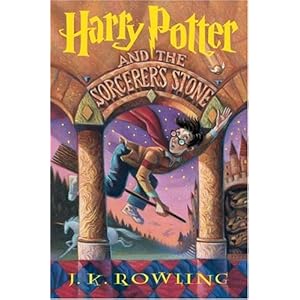After hopping from Middle Grade to YA and now to Women's Fiction (go figure!), I've had a fantastic time pushing the envelope on my ideas and writing. I recently had to look up what exactly Women's fiction is and was startled to discover that there are SO many different genres under the umbrella of Fiction.
Today I want to share those with you because it is truly fascinating just how many Genres there are.
Chick Lit:
Chick lit describes its intended readership as much as its story’s content. Chick lit often has light-hearted, amusing tales of dating woes, career foibles, and personal antics as they relate to the problems of average female 20- & 30-somethings: finding the right career, the right man, and the right attitude. The stories are usually fun, down-to-earth, quirky, and entertaining—a good beach read.
Similar to romance, the central conflict of chick lit often includes love and relationships; however, unlike romance, it is rarely rooted in pure fantastical romantic gratification.
Commercial Fiction:
Commercial fiction uses high-concept hooks and compelling plots to give it a wide, mainstream appeal. Commercial fiction often has the “ouuuh” factor: summarize what happens in your novel is a single, succinct sentence, and you invariably get, “ouhhh, that sounds interesting!” Plot (the events) and story (the overall tale) are first and foremost; characters’ choices and actions create heightened drama that propels the reader forward with urgency.
Like literary fiction, the writing style in commercial fiction is elevated beyond generic mainstream fiction. But unlike literary fiction, commercial fiction maintains a strong narrative storyline as its central goal, rather than the development of enviable prose or internal character conflicts. Commercial fiction often incorporates other genre types under its umbrella such as women’s fiction, thriller, suspense, adventure, family saga, chick lit, etc. Commercial fiction is not the same as "mainstream" or "mass market" fiction, which are both umbrella terms that refer to genre fiction like science fiction, fantasy, romance, mystery, and some thrillers.
Crime Fiction:
Crime fiction centers its plot on the perpetration of a crime. There are two main subgenres of crime fiction: detective fiction and true crime. True crime focuses its story on the crime scene and the criminal mind. Lurid crime scenes, graphic violence, con games, organized crime, and the criminal underworld are all familiar elements in true crime fiction. Detective fiction, on the other hand, focuses its narrative on the professional or amateur investigators seeking to solve the crime and bring the criminal to justice.
Fantasy:
Fantasy uses imaginary worlds and mystical creatures within its storyline. Familiar characters of fables and mythology such as princes and princesses, knights, dragons, giants, faeries, goblins, gnomes, wizards, and witches often show up in this genre. Magic, spells, swords and sorcery, supernatural powers, talking animals, and fanciful kingdoms are welcomed stereotypes.
Historical Fiction:
Historical fiction is often a work of literary fiction or commercial fiction in which the plot and story transpire during a distinct era in the past. True historical fiction portrays conflicts and characters that depended on a particular time period for their existence (Civil War battles and heroes, slave trade in colonial America, 18th-century British royalty, 1960s civil right leaders, etc.) These conflicts and characters are inseparable from the author’s decision to set the story in a non-contemporary era; the historical time and place influence the unfolding narrative and the characters' struggles within it.
Historical fiction is a careful balance between fact and fiction; and although characters and events may be exaggerated or completely made up for the sake of a good story, accurate historical facts and details lend credence and legitimacy to the overall tale. Although literary or commercial fiction often incorporates historical elements into their stories for atmospheric effect, this is not the same as historical fiction, which uses historical settings and time periods to establish its core conflicts.
Horror:
Horror fiction has one inelucable goal: to scare its readers. Its chilling pendulum swings with a broad arc, and uses a wide range of techniques to terrify and titillate its audience. From extreme blood and guts, graphic violence, murder and mayhem to psychological suspense, criminal underworlds, supernatural folklore, erotica, and surrealism, horror often portrays the base, subversive side of its fictional world.
Literary Fiction:
If you marvel at the quality of writing in your novel above all else, then you’ve probably written a work of literary fiction. Literary fiction explores inherent conflicts of the human condition through stellar writing. Pacing, plot, and commercial appeal are secondary to the development of story through first-class prose.
Multi-layered themes, descriptive narration, and three-dimensional characterization distinguish this genre from all others. Literary fiction often experiments with traditional structure, narrative voice, multi-POVs, and storylines to achieve an elevated sense of artistry. Although some literary fiction can become "commercial" by transcending its niche market and appealing to a broader audience, this is not the same as commercial fiction, which at its core has a commerical, marketable hook, plot, and storyline—all developed through literary prose. Literary fiction often merges with other fiction types to create hybrid genres such as literary thrillers, mysteries, historicals, epics, and family sagas.
Multi-Cultural
Multi-cultural can be a tricky genre to simply pin down because it can mean different things to different literary agents and publishers. Most insiders will agree that multi-cultural fiction is a code word for books that possess racial and ethnic diversity within the depiction of its characters, cultures, and conflicts. This includes African-American and Latino fiction. In addition, books characterized as multi-cultural often fall under the broader genre umbrella of commercial fiction, romance, chick lit or literary fiction. Waiting to Exhale, House on Mango Street, and Joy Luck Club are all examples of multi-cultural fiction as well as commercial/literary fiction.
Mystery:
Mysteries typically focus on the process of solving a crime, rather than the details of the crime itself. The puzzle behind the crime is central to the plot. Amateurs or professional investigators perform the sleuthing, and often a single protagonists or a whole host of characters recur in popular serial titles.
Unlike crime/true crime fiction which explores the world of the criminal mind, mystery focuses on the investigators or detectives determined to bring the criminal to justice.
Romance:
Romance is a specific fiction genre in which the central conflict revolves around the love story between a man and a woman. The settings are often exotic. The characters are regal and glamorous. And the ensuing story is inevitably dramatic—even melodramatic. Furthermore, writing style aids the passion of the climactic conflicts and events, and catapults the reader through a gratifying romantic fantasy. And a happily ever-after ending is requisite.
If you didn’t intentionally set out to write a romance novel, it’s probably not a romance. There are specific publishing houses dedicated to the publication of this genre, as well as agents who specialize in the sale of these novels. Subgenres include contemporary, suspense, time-travel, futuristic, paranormal, Western, historical, regency, and gothic romance. Romance is also a member of the general grouping of “genre fiction,” “mainstream fiction,” “mass market fiction,” “category fiction,” and "mass market" fiction.
Science Fiction:
Science fiction incorporates various types of science into its story, settings, characters and the challenges that they must overcome. Scientific details, facts, and rules are either adhered to or broken, but either way, they contribute to the contextual storyline as well as the world created within the novel. Science becomes a character itself.
Unlike its genre cousin, “fantasy,” science fiction utilizes scientific elements based in reality—not simply imaginary fables or mythology. However, it is true that science fiction often stretches the bounds of known scientific laws and discoveries, and thus, science fiction sometimes incorporates both science and fantasy into its fictional world. For this reason, they are often paired together as a single genre. Science fiction is also included in the general grouping of “genre fiction,” “category fiction,” “mainstream” fiction,” or “mass market fiction.”
Thriller/Suspense:
The dramatic conflicts of thrillers/suspense are fraught with peril: a life-threatening danger that jeopardizes the protagonist, his or her loved ones, or even the whole world. The stakes are often large—death and destruction to lives, the downfall of an entire nation, an ecological disaster. However, thrillers can also simply portray riveting psychological tension between two opposing characters. Thrillers and suspense fiction are paired together because thrillers often utilize suspense elements in the development of the story—evil lurking just around the corner that motivates the protagonist to hunt down and capture the villain-at-large.
Although both thrillers and mysteries often involve the protagonist solving a crime and bringing bad guys to justice, the central conflict of thrillers/suspense focuses on developing an urgent sense of imminent jeopardy rather than solving a mystery or the detection of a crime. Thriller/suspense protagonists must win at all costs against a menacing, pernicious threat—or else things are going from bad to worse, and fast. Subgenres include psychological, supernatural, military, espionage, political, medical, legal, erotic and literary thrillers. Thriller/suspense is also included in the general grouping of “genre fiction,” “category fiction,” “mainstream” fiction,” or “mass market fiction.”
Women’s Fiction:
Women’s fiction is just that: fiction about women’s issues for a female readership. However, it is not the same as chick lit or romance. While utilizing literary prose, women’s fiction is very commercial in its appeal. Its characters are often women attempting to overcome both personal and external adversity.
Although women’s fiction often incorporates grave situations such as abuse, poverty, divorce, familial breakdown, and other social struggles, it can also explore positive aspects within women’s lives. Romantic love stories are also part of women’s fiction, and although love stories are found in chick lit and romance, the mature depth and tone of their development within women’s fiction set them apart from other genre classifications.









